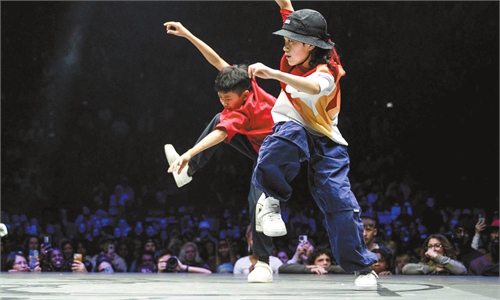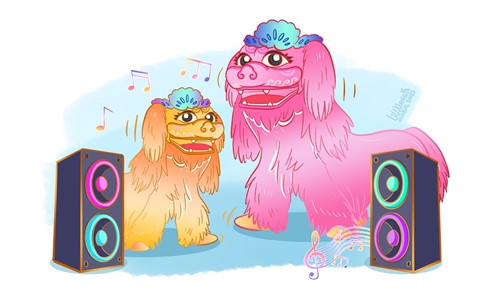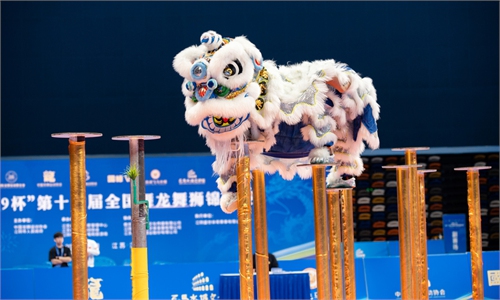ARTS / CULTURE & LEISURE
Gen Alpha brings fresh energy to China’s intangible cultural heritage
Fun with tradition
Editor's Note:
Generation Alpha is growing up in an era marked by technological advancement and deepening globalization. They possess broader perspectives, greater adaptability to technology, and more open mindsets. These youth are not only the builders of tomorrow, but also active participants in today's social changes.
This series will offer an in-depth look at the unique personalities, values, and stories of China's Gen Alpha, as we aim to showcase this emerging generation's innovation and practice, presenting a multidimensional portrayal, and igniting discourse about the role of these young individuals in shaping the future of society, while highlighting their contributions to cultural evolution.
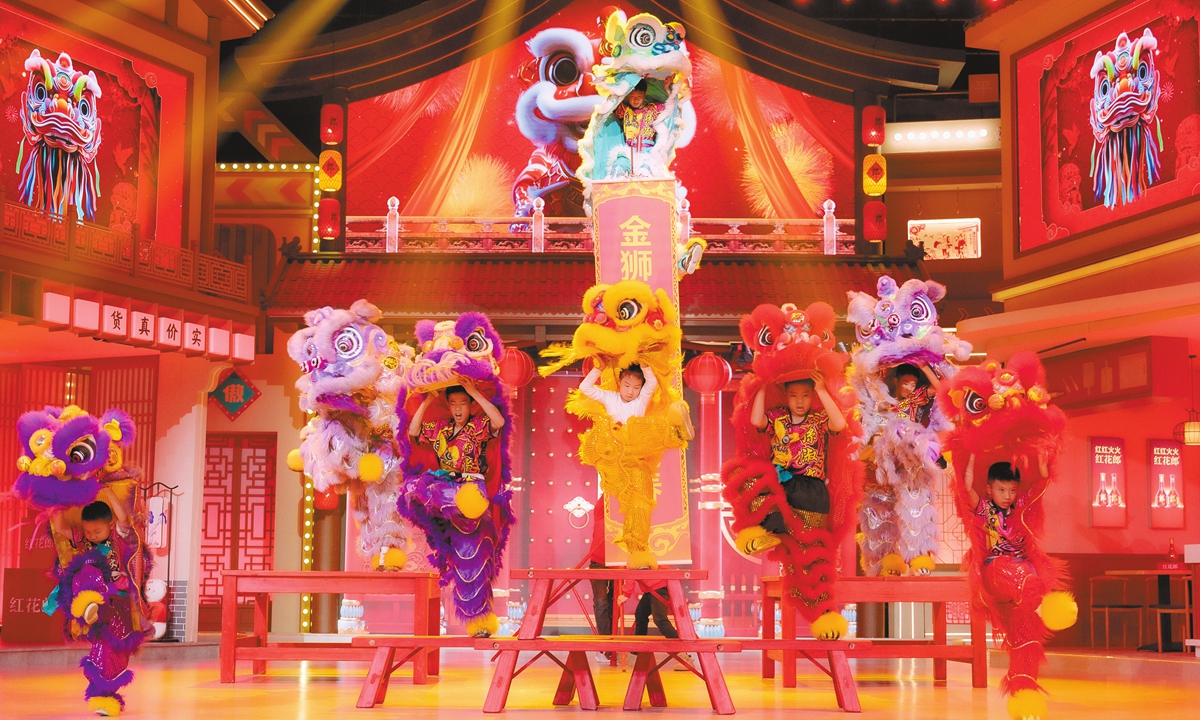
Generation Alpha is growing up in an era marked by technological advancement and deepening globalization. They possess broader perspectives, greater adaptability to technology, and more open mindsets. These youth are not only the builders of tomorrow, but also active participants in today's social changes.
This series will offer an in-depth look at the unique personalities, values, and stories of China's Gen Alpha, as we aim to showcase this emerging generation's innovation and practice, presenting a multidimensional portrayal, and igniting discourse about the role of these young individuals in shaping the future of society, while highlighting their contributions to cultural evolution.

Lin Xiyue (fourth from left) performs lion dancing at a TV program in Beijing in December 2024. Photo: Courtesy of Pan Yongxue
Holding a pair of child-sized Yingge sticks, 5-year-old Zhuang Enqi from Shantou, South China's Guangdong Province, followed the beat of the drum, dancing alongside local Yingge dance performers with strength and rhythm beyond her years.
Zhuang's confident moves quickly won thumbs up from the dancers and even more applause when her father posted the video on Douyin - China's version of TikTok - on April 7, 2024. Since then, the video has garnered over 320,000 likes, with many netizens commenting "cultural inheritance" beneath it.
Monday marked the one-year anniversary of that memorable moment. In the year since, Zhuang has received more professional Yingge training and performed on bigger stages, including appearances on China Central Television.
While in Guangdong's Jieyang city, another young cultural performer is capturing hearts with the lion dance. Starting with practice on the street to the Spring Festival Gala, 8-year-old Lin Xiyue has even attracted hundreds of children of her age, especially girls, to join a newly founded children's lion dance troupe.
Bu Xiting, an associate researcher with the School of Cultural Industries Management at the Communication University of China, told the Global Times that a new generation of young learners - Gen Alpha - is stepping up to keep China's intangible cultural heritage (ICH) alive. Their participation is helping bridge generational gaps in traditional arts, ensuring these time-honored practices are not forgotten.
"By learning and performing folk arts like Yingge dance or lion dance, these children are not only preserving tradition but also bringing fresh energy and youthfulness to it. Along the way, they are building a stronger connection to their cultural roots and growing a sense of pride in their heritage," Bu remarked.
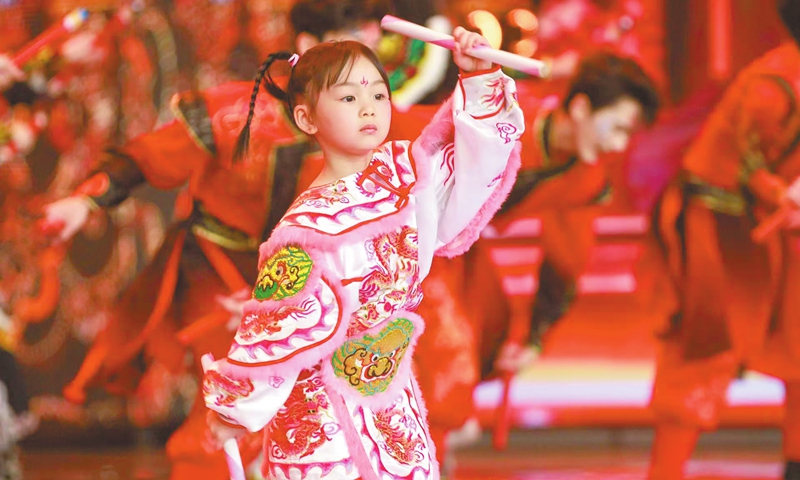
Zhuang Enqi performs the Yingge dance in Guangzhou, South China's Guangdong Province, on January 13, 2025. Photo: Courtesy of Zhuang Rongqiang
Out of interest
The Yingge dance, or "dance to the hero's song," is a form of folk dance popular in South China's Guangdong Province that merges opera, dance and martial arts. Dating back to the Ming Dynasty (1368-1644), this traditional dance is often performed during traditional Chinese festivals. In 2006, it was listed as the first batch of national ICH.
For little Enqi, who was born in 2019, Yingge is more than just a local tradition - it's a family legacy. Her grandfather was a member of the village Yingge troupe. Her father, Zhuang Rongqiang, now plays the drum in the Yingge team.
The father recalled taking his daughter to the training grounds when she was just 4. By the second or third time, Enqi was asking for her own pair of child-sized Yingge sticks. Small drums, cymbals, serpent props, and Yingge sticks adapted for children are everywhere in the living room of Enqi's family.
It wasn't until the girl began dancing alongside local Yingge performers that her family realized just how much she had improved in the Yingge dance, Zhuang told the Global Times.
Since then, Zhuang Rongqiang has invited local Yingge dance performers to teach Enqi more movements and routines. "They said she is 'talented' in Yingge dance," the father said.
She practices for about half an hour a day. Sometimes she just practices more herself when she's free, said the proud father. When people ask Enqi why she loves Yingge, her answer is simple - "It's fun."
For now, preserving ICH is a concept still beyond her years. But her father says they'll support her interest - whether that means dancing Yingge or learning other Chaoshan traditions.
At her kindergarten, Yingge dance has become part of the routine, with teachers often organizing sessions to help children stay active. As local efforts to bring the traditional dance into schools and communities continue to grow, more and more young people are joining in - breathing new life into this ancient art form.
Girls go 'lion'
Like Zhuang, an increasing number of children born after 2010 are diving into traditional Chinese arts starting with just "fun." Eight-year-old Lin Xiyue is one of them, and her love for lion dancing earned her a coveted spot on the stage of the 2025 Chinese New Year Gala.
Hailing from Jieyang, Guangdong, Lin began lion dance training at 4 years old, following in the footsteps of her father Lin Kairong. "She thought it looked cool, and it felt fun," he told the Global Times. "She's always had a bit of athletic flair, and with lion dancing being powerful and rhythmic, she loved moving with the beat."
From her earliest days, the girl practiced on the street, where passersby began to take notice. After school, she consistently practiced for over 30 minutes a day - a routine she's never broken.
Her breakthrough came during the Spring Festival Gala, where she performed a dramatic leap while carrying the lion's head - a moment that catapulted her into the national spotlight. For that night, her father had custom-made a lion head two pounds heavier than her usual one. After the show, she told her parents that she wanted to present her best moves though her chest was hurting from the strain.
"As a mother, of course I was heartbroken," Pan Yongxue, the girl's mother, told the Global Times. "But she's never wanted to give up. She loves it, so we fully support her."
Lin's star turn inspired many children her age to try lion dancing and it's no longer just boys. "Now I see plenty of girls joining. They may not be as strong, but they're more precise, more expressive," Lin's father noted.
There's even the first ever children lion dance troupe founded. "Lion dancing has always been a tradition here," Lin's father said. "But most who got serious were boys over 15. Now I see 7- to 13-year-olds who genuinely want to learn."
